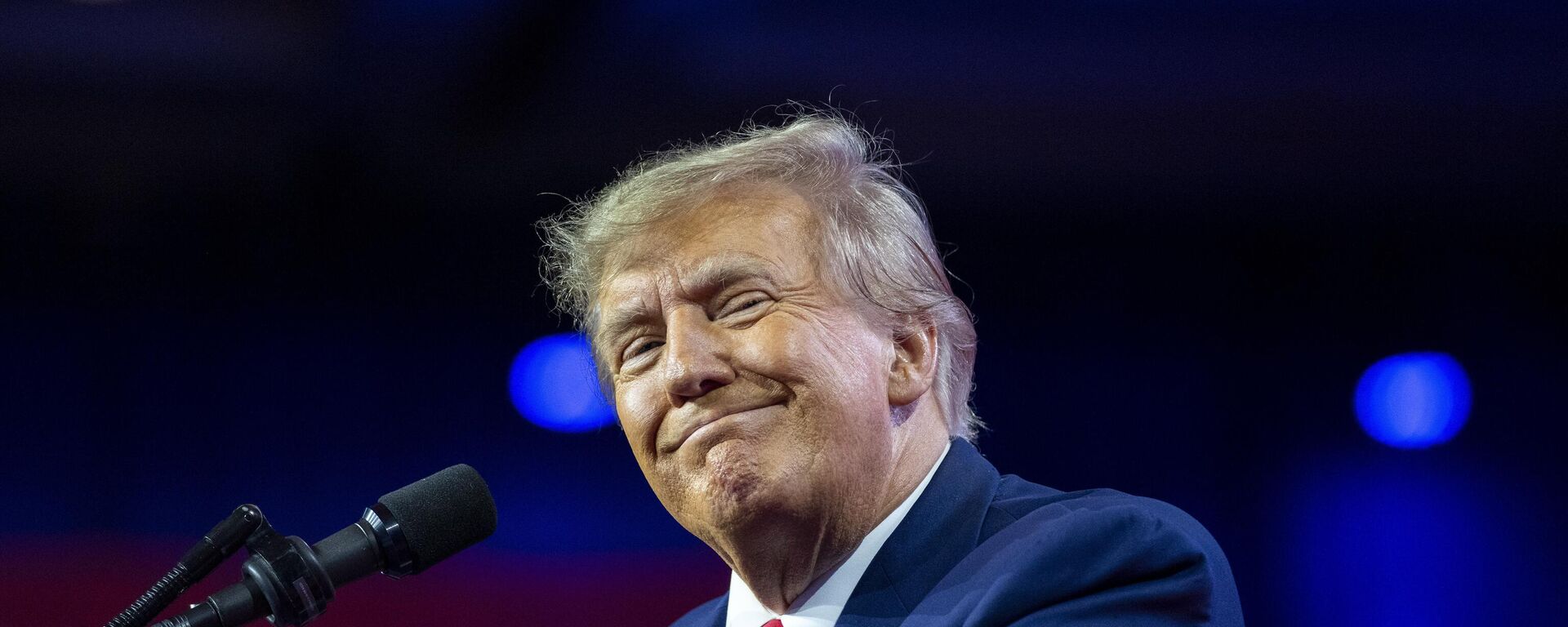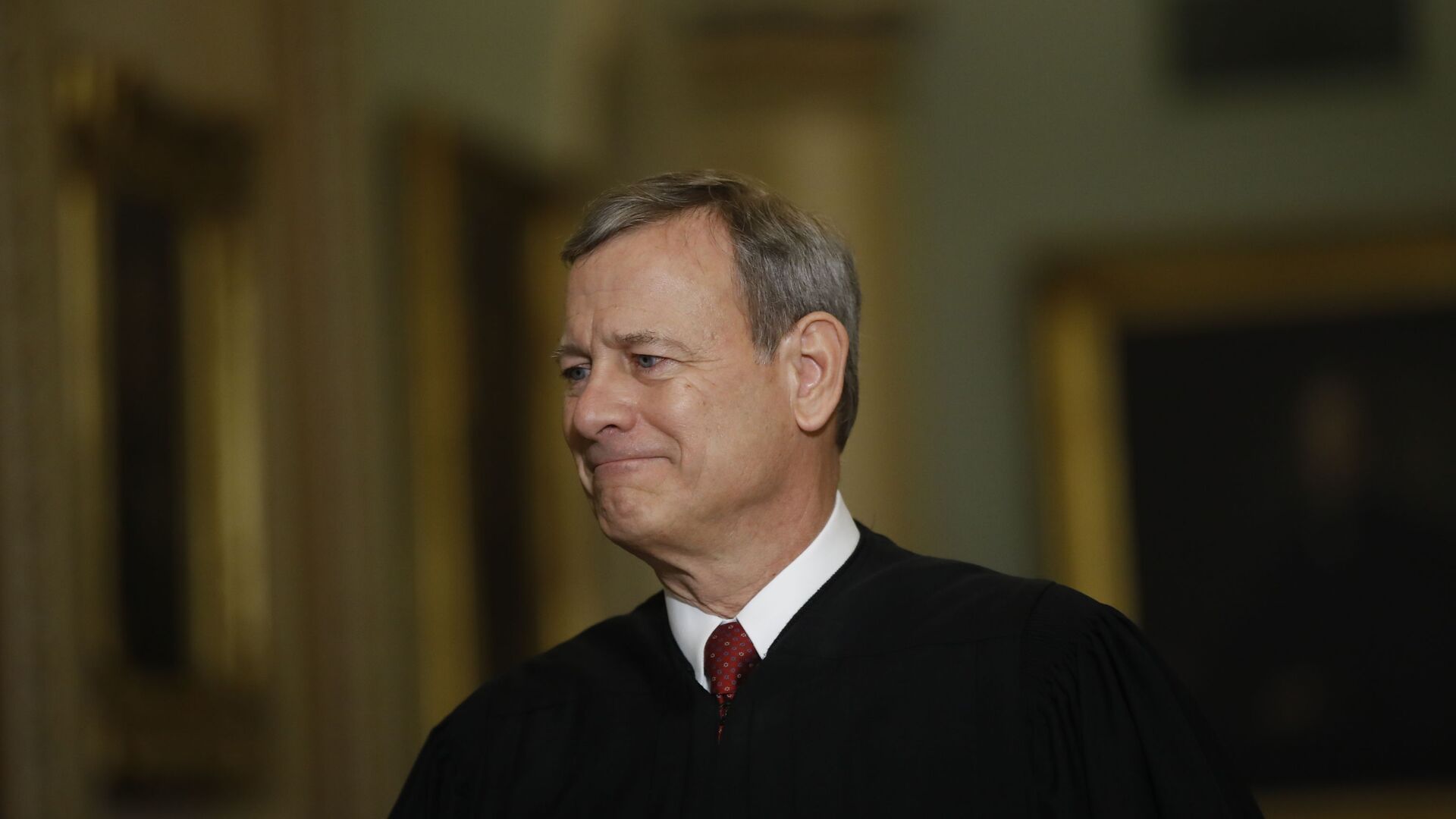https://sputnikglobe.com/20240101/machines-cannot-fully-replace-key-actors-in-court-us-chief-justice-says-1115926444.html
'Machines Cannot Fully Replace Key Actors in Court,' US Chief Justice Says
'Machines Cannot Fully Replace Key Actors in Court,' US Chief Justice Says
Sputnik International
The head of the US Supreme Court has emphasized that as AI tools become more widespread, they are reshaping how judges perform their roles and understand case details. However, concerns persist regarding potential misinformation and errors arising from AI-generated content.
2024-01-01T11:35+0000
2024-01-01T11:35+0000
2024-01-01T11:36+0000
americas
newsfeed
john roberts
michael cohen
donald trump
supreme court
https://cdn1.img.sputnikglobe.com/img/107805/48/1078054824_0:182:3072:1910_1920x0_80_0_0_7cb72c03f83e1e5eb3b2f56d0c8afda7.jpg
In his recent end-of-year report, Chief Justice John G. Roberts, Jr. addressed the increasing influence of artificial intelligence (AI) within the American judicial system. While acknowledging the advancements in AI technology, Roberts highlighted several concerns regarding its implications for the legal profession.Roberts highlighted that AI tools have become more prevalent, reshaping how judges execute their roles and comprehend case contexts.Nevertheless, he stressed that distinct human gestures and feelings, like a shaky voice or a brief moment of lost eye contact, retain their significance in legal proceedings. He stated, "Machines cannot fully replace key actors in court," underscoring the importance of human judgment in interpreting subtle cues and making informed decisions.A significant concern raised by Roberts is the potential for misinformation and errors stemming from AI-generated content. He cited instances where AI-produced legal briefs contained inaccuracies, including fictitious cases and misrepresented facts. For example, a recent court document revealed that Michael Cohen, Donald Trump's former lawyer, inadvertently included fabricated cases generated by AI in a legal brief.Furthermore, Roberts expressed apprehension about the implications of AI on legal research. While recognizing its capacity to enhance access to information for both legal professionals and the public, he cautioned against the potential risks associated with AI, such as privacy breaches and the potential dehumanization of the legal process. Historically, integrating new technologies into the judicial system has posed challenges for courts. Roberts himself has maintained a traditional approach to drafting opinions, preferring handwritten notes over digital platforms.The report failed to touch on the controversies surrounding the Supreme Court report regarding ethical concerns involving Justice Clarence Thomas' disclosure lapses about gifts and trips from wealthy benefactors.
https://sputnikglobe.com/20231002/us-supreme-court-declines-to-hear-case-to-ban-trump-from-running-for-president---filing-1113864068.html
americas
Sputnik International
feedback@sputniknews.com
+74956456601
MIA „Rossiya Segodnya“
2024
Chimauchem Nwosu
https://cdn1.img.sputnikglobe.com/img/07e7/09/01/1113046371_0:99:1536:1635_100x100_80_0_0_9c5c627283eca931c39fe4852bbb301c.jpg
Chimauchem Nwosu
https://cdn1.img.sputnikglobe.com/img/07e7/09/01/1113046371_0:99:1536:1635_100x100_80_0_0_9c5c627283eca931c39fe4852bbb301c.jpg
News
en_EN
Sputnik International
feedback@sputniknews.com
+74956456601
MIA „Rossiya Segodnya“
Sputnik International
feedback@sputniknews.com
+74956456601
MIA „Rossiya Segodnya“
Chimauchem Nwosu
https://cdn1.img.sputnikglobe.com/img/07e7/09/01/1113046371_0:99:1536:1635_100x100_80_0_0_9c5c627283eca931c39fe4852bbb301c.jpg
chief justice roberts, ai in us courtrooms, human touch in law, misinformation risks, ai-generated legal briefs, legal research implications, privacy breaches, us legal process, supreme court controversies.
chief justice roberts, ai in us courtrooms, human touch in law, misinformation risks, ai-generated legal briefs, legal research implications, privacy breaches, us legal process, supreme court controversies.
'Machines Cannot Fully Replace Key Actors in Court,' US Chief Justice Says
11:35 GMT 01.01.2024 (Updated: 11:36 GMT 01.01.2024) The head of the US Supreme Court has emphasized that as AI tools become more widespread, they are reshaping how judges perform their roles and understand case details. However, concerns persist regarding potential misinformation and errors arising from AI-generated content.
In his
recent end-of-year report, Chief Justice John G. Roberts, Jr. addressed the increasing influence of artificial intelligence (AI) within the American judicial system. While acknowledging the advancements in AI technology, Roberts highlighted several concerns regarding its implications for the legal profession.
Roberts highlighted that AI tools have become more prevalent, reshaping how judges execute their roles and comprehend case contexts.
Nevertheless, he stressed that distinct human gestures and feelings, like a shaky voice or a brief moment of lost eye contact, retain their significance in legal proceedings. He stated, "Machines cannot fully replace key actors in court," underscoring the importance of human judgment in interpreting subtle cues and making informed decisions.

2 October 2023, 16:56 GMT
A significant concern raised by Roberts is the potential for misinformation and errors stemming from AI-generated content. He cited instances where AI-produced legal briefs contained inaccuracies, including fictitious cases and misrepresented facts. For example, a recent court document revealed that
Michael Cohen, Donald Trump's former lawyer, inadvertently included fabricated cases generated by AI in a legal brief.
Furthermore, Roberts expressed apprehension about the implications of AI on legal research. While recognizing its capacity to enhance access to information for both legal professionals and the public, he cautioned against the potential risks associated with AI, such as privacy breaches and the potential dehumanization of the legal process.
Historically, integrating new technologies into the judicial system has posed challenges for courts. Roberts himself has maintained a traditional approach to drafting opinions, preferring handwritten notes over digital platforms.
The report failed to touch on the controversies surrounding the Supreme Court report regarding ethical concerns involving Justice Clarence Thomas' disclosure lapses about gifts and trips from wealthy benefactors.




